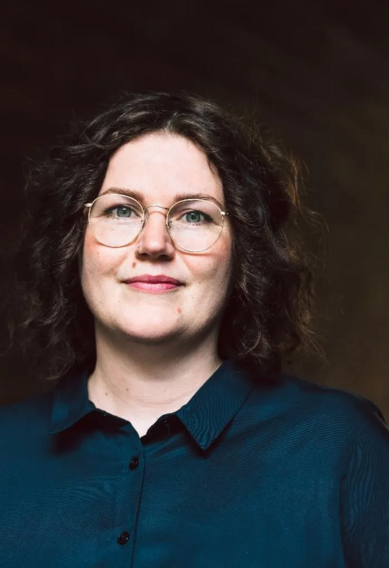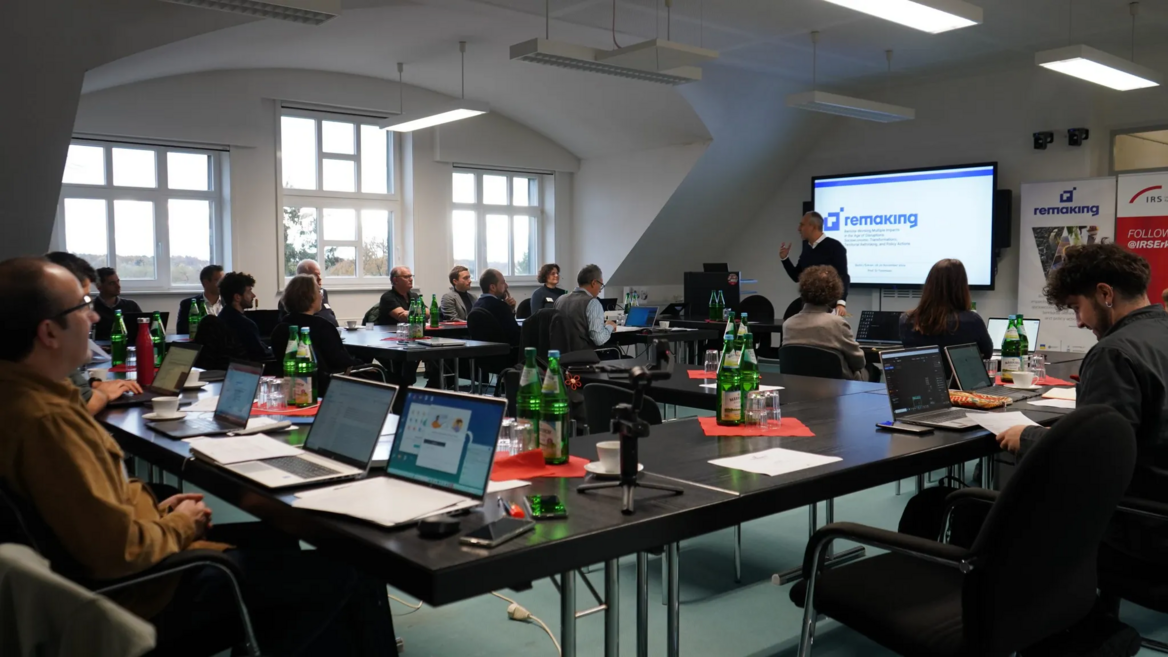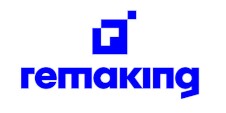Main Content
“Stories about remote work are also stories about migration, families and personal biographies”
Interview with Anna Oechslen

People are working remotely for a variety of reasons. The EU project REMAKING is investigating the trend towards remote work. Anna Oechslen, postdoctoral researcher in the "Creativity and Work" Research Group, is working on the IRS part of the research project.
Ms Oechslen, the REMAKING consortium is investigating remote work. What does that mean and what is the aim of the project?
In REMAKING, we are investigating various forms of work that are performed across geographical distances with the help of digital technologies. This includes, for example, employment relationships that have been permanently changed by Covid and now include home office as standard, but also international working practices: from ‘digital nomads’, mostly highly qualified workers who work remotely partly out of personal preference and partly for economic reasons, but also (for example) the work of refugees from Ukraine who work remotely from abroad for their Ukrainian or other employers. The project aims to identify the consequences of remote work for companies, employees and regions in order to understand spatial transformation processes and offer perspectives for their political shaping.
Can you actually compare war refugees with software developers sitting on the beach with their laptops?
Yes, it seems strange at first. But ultimately, it is precisely about not viewing remote work as a niche or lifestyle phenomenon, but as part of larger social processes. These include digitalisation, but also particularly disruptive events such as the Covid-19 pandemic and the war in Ukraine. By looking at very different forms of remote work and the experiences people have with it, we can better understand what makes this phenomenon tick. This broad perspective is precisely what makes REMAKING so valuable. At the same time, we want to use the individual case studies to gain a concrete understanding of what characterises and distinguishes the different forms of remote work.
What exactly are you researching at the IRS?
In our case study, we are investigating how Ukrainian refugees in Germany use remote work internationally. Either by ‘taking’ their job with them from Ukraine and continuing it remotely from Germany or by working for companies or clients in different countries. We are collaborating with the Prague University of Economics and Business and the Taras Shevchenko National University in Kyiv. We want to better understand what these arrangements mean for people's well-being and how they are institutionally embedded. In a situation where I must leave home abruptly, don't yet speak the local language, await recognition of my educational qualifications and maybe hope to return soon, remote work can cushion some of the uncertainties. At the same time, however, it also raises new questions and challenges: Where do I have to pay taxes? Is my Ukrainian salary enough to finance my life in Berlin? And what happens if I do want to stay long-term but can't find local employment? We analyse this area of tension and also try to show how the phenomenon of remote work is interwoven with social structures.
What do you need to consider when conducting interviews with refugees?
When developing the interview guidelines, we talked a lot about how we could deal sensitively with the traumatic experiences of war and flight that some of our interviewees had gone through. For example, we avoid asking directly about their flight, but focus on their everyday working life. At the same time, the topic cannot be completely ignored, and the first interviews showed that many people feel the need to talk about it. It is also particularly important to handle the information our interviewees share with us with care so that our research does not harm them. This is always the case with empirical research, but because refugee status also causes precariousness on many levels, it takes a lot of trust to talk openly about personal matters in an interview. It is very helpful that we can discuss these issues with our Ukrainian colleagues in the project.

How is collaboration managed among the twelve institutions from eleven countries participating in REMAKING?
The four case studies are distributed among the partners and are mainly examined where the group under investigation can be easily found: digital nomads in Greece and Portugal, high-tech employees in Ireland, refugees in Germany and the Czech Republic and commuters in Italy. However, each group does not conduct its research independently. The results of the case studies are transferred to three cross-sectional work packages, each of which aims to achieve a specific common result: the effects of remote work on living and working conditions, on organisations and on regions. This requires a great deal of coordination. We meet twice a year with the entire project team to exchange ideas. The research planning for each case study must take the three work packages into account from the outset. At the IRS, we coordinate the work package on living and working conditions: at the beginning of the project, we reviewed the literature on the topic and developed overarching guiding questions for the case studies. Now, during the field research, we regularly exchange ideas with colleagues from the different case studies to see which common themes emerge across the individual cases.
REMAKING aims to incorporate practical experience and make remote work a starting point for transformative policy and planning. How do you involve practitioners and what do you offer them specifically?
We work with partners from the field, such as the Museum der Arbeit in Hamburg, but also with actors from public administration and coworking associations. It is also important to us to coordinate with practitioners throughout the research process: At the start of our field research, we organised a workshop in Berlin in February to present REMAKING and gather feedback on our research design from practitioners. The background knowledge of the participants, including job advisors for refugees and a coworking space operator, helps us to better understand the research context and address questions that are relevant to practice. It has also resulted in some valuable contacts for interviews. In the summer, we plan to present our interim findings, and once the field research is complete, we will hold policy workshops with our partners to derive recommendations for action based on the results. In addition to the practical knowledge that we hope to gain, it is also interesting for our partners to network at the European level and gain insights into how other countries are dealing with this issue.
REMAKING has been running for a year. Has anything surprised you so far?
For me, the most striking thing was how closely the topic of remote work is interwoven with other issues. One participant in the practical workshop described it as follows: stories about remote work also tell stories of migration, families and personal biographies. These connections are what make the topic so interesting for me.
What is exactly the current state and what will happen next?
For us, 2025 is the year of data collection. The next few months will therefore be dominated by interviews and participatory observation. Starting in autumn, we will then begin to connect the dots and continue working with the results.
Thank you very much for your time!


